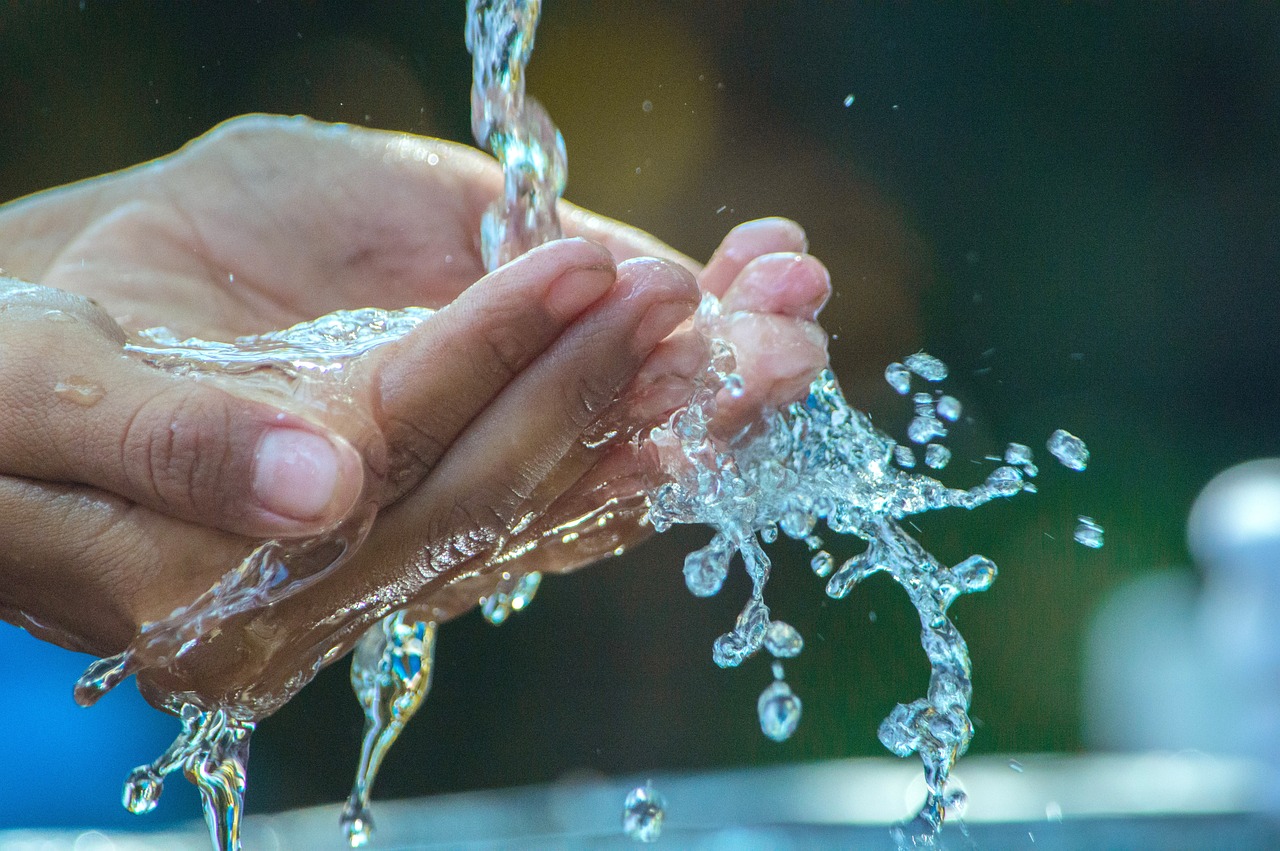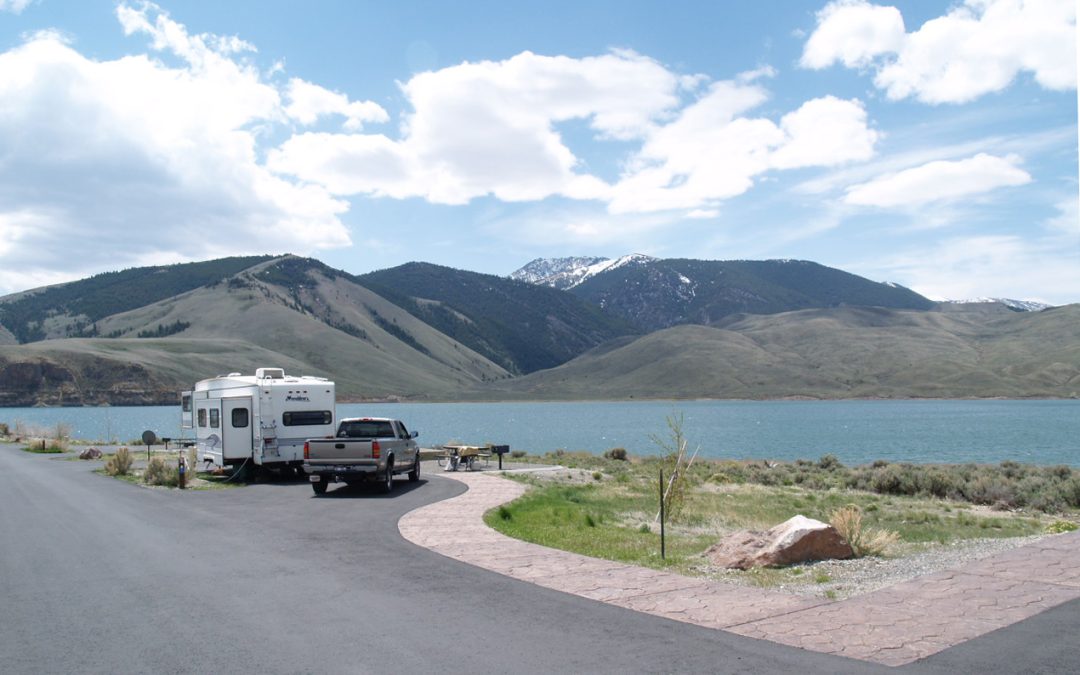RV boondocking is a popular activity for those who love to travel and explore nature. Boondocking provides a unique opportunity to experience the great outdoors, but it comes with a challenge: managing and conserving water in remote locations. In this comprehensive guide, we will provide you with the best water management and conservation techniques for RV boondocking.
RV boondocking refers to camping in remote locations that are not connected to public utilities such as water, electricity, or sewer systems. As a result, it is crucial to manage and conserve resources such as water, which is a finite resource in such remote locations. In this guide, we will explore water management and conservation techniques to help you make the most of your boondocking experience.

Understanding Water Sources and Usage
RV boondocking offers three primary sources of water: potable water, non-potable water, and greywater. Potable water is the freshwater you bring with you, while non-potable water can be found in natural sources such as rivers and lakes. Greywater is the wastewater from your sinks and showers.
Understanding your water usage needs is critical. The average person uses about 80-100 gallons of water per day, but in RV boondocking, it is recommended to use no more than 5-10 gallons of water per day per person.
Water Conservation Techniques
Water conservation is the practice of using water efficiently and reducing wastage. Here are some water conservation techniques for RV boondocking:
- Using low-flow faucets and showerheads to reduce water usage.
- Capturing and reusing greywater for tasks such as flushing toilets or watering plants.
- Reducing water usage in laundry and dishes by using minimal amounts of water.
- Using water-efficient appliances such as dishwashers and washing machines.
- Tips for reducing water usage in daily activities such as using a bucket to collect water while waiting for hot water to come out of the faucet.
Water Management Techniques
Water management involves understanding your water storage capacity, distribution, and monitoring your water levels and usage. Here are some tips for proper water management in RV boondocking:
- Understanding water storage capacity in your RV and carrying extra water if needed.
- Tips for proper water storage and distribution include using a water pressure regulator and ensuring equal water distribution throughout the RV.
- Monitoring water levels and usage by installing a water level indicator.
- Choosing the right water filtration system to ensure the quality of the water you consume.
- Managing and maintaining your RV’s plumbing system to prevent water wastage.
Environmental Impact of Water Usage in RV Boondocking
Minimizing the environmental impact of water usage in RV boondocking is crucial. Here are some tips for minimizing your impact:
- Minimize the use of chemicals and use environmentally friendly soaps and detergents.
- Properly dispose of greywater by not disposing of it within 200 feet of water bodies.
- Use a portable toilet to avoid contaminating water bodies and disturbing wildlife.
- Leave no trace by always leaving your campsite as you found it and not leaving any trash or waste behind.
- Respect wildlife by not disturbing them and keeping your distance from them.
Resources
- U.S. Environmental Protection Agency (EPA) – WaterSense URL: https://www.epa.gov/watersense This government website offers information and tips on water conservation for various purposes, including RV use.
- The RV Geeks – Water Conservation Tips for RV Boondocking URL: https://www.thervgeeks.com/water-conservation-tips-for-rv-boondocking/ This popular RV blog provides practical tips and advice on conserving water while boondocking.
- Leave No Trace Center for Outdoor Ethics – Principles URL: https://lnt.org/why/7-principles/ This website offers guidelines for responsible outdoor recreation, including minimizing the environmental impact of water usage during RV boondocking.
- DoItYourselfRV – Boondocking Water Conservation Tips URL: https://www.doityourselfrv.com/boondocking-water-conservation-tips/ This website offers practical advice and tips for conserving water while RV boondocking, including water usage calculations and management techniques.
- GoRVing – Water Conservation and Management for RVers URL: https://www.gorving.com/tips-inspiration/maintenance-technical/water-conservation-and-management-for-rvers This comprehensive resource offers information on water conservation and management, covering water storage, distribution, and monitoring for RV boondocking.
FAQs
- Q: What is RV boondocking, and why is water management essential in this activity?
A: RV boondocking is camping in remote locations without access to public utilities such as water, electricity, and sewer systems. Water management is essential in RV boondocking because water is a finite resource in remote locations, and it is necessary to conserve water to ensure a successful and enjoyable experience. - Q: How can I estimate my water needs for RV boondocking, and what factors should I consider?
A: To estimate your water needs, consider the number of people in your RV, the length of your trip, and your planned activities. A general rule of thumb is to use no more than 5-10 gallons of water per person per day. However, it’s always best to carry extra water to avoid running out. - Q: What is greywater, and how can I reuse it in RV boondocking?
A: Greywater is wastewater from your sinks and showers. You can reuse it for tasks such as flushing toilets or watering plants by using a greywater capture system. - Q: Can I use a water filtration system for RV boondocking, and what type of system should I choose?
A: Yes, using a water filtration system is highly recommended for RV boondocking. There are different types of water filtration systems available for RVers, such as carbon filters, ceramic filters, and reverse osmosis systems.
Each type of system has its own advantages and disadvantages.
-
- Carbon filters are the most common type of water filtration system for RVs. They are affordable and effective at removing unpleasant tastes and odors from water.
- Ceramic filters are another option that removes bacteria and sediments from water.
- Reverse osmosis systems are the most advanced and effective type of water filtration system, as they can remove up to 99% of all contaminants from water.
When choosing a water filtration system, it is essential to consider the quality of the water in the boondocking location and your specific needs. A water testing kit can help determine the type of system needed for your RV.
- Q: What are some common mistakes to avoid in water management and conservation in RV boondocking?
A: There are several common mistakes to avoid in water management and conservation in RV boondocking, such as:- Underestimating your water needs:
- It’s essential to calculate your water needs accurately to ensure you have enough water for your trip.
- Leaving faucets running: Turning off the water when not in use can save a significant amount of water.
- Using too much water in dishwashing and laundry: Using a minimal amount of water while washing dishes and laundry can save a lot of water.
- Dumping wastewater near water sources: This can contaminate the local ecosystem and harm wildlife.
- Not maintaining your RV’s plumbing system: Regular maintenance can prevent leaks and other plumbing issues, which can lead to water waste.
- Q: Are there any water conservation and management tools or apps that can help me in RV boondocking?
A: Yes, there are many water conservation and management tools and apps available for RV boondocking. These tools can help you track your water usage, estimate your water needs, and identify water-saving opportunities. Some popular water management tools for RVers include TankTechsRx, WaterLog, and Flowie. Water usage trackers, tank level indicators, and greywater capture systems are also useful tools for water management and conservation.
Conclusion
Managing and conserving water is essential for RV boondocking, where access to public utilities is limited or non-existent. Understanding your water sources and usage, implementing effective water conservation techniques, and properly managing your water storage and distribution can help you make the most of your boondocking experience while minimizing your impact on the environment. Additionally, by minimizing the environmental impact of water usage, we can protect the natural resources and habitats we are visiting.
Featured Image Joe T. Fallini Campground by Bureau of Land Management via flickr

